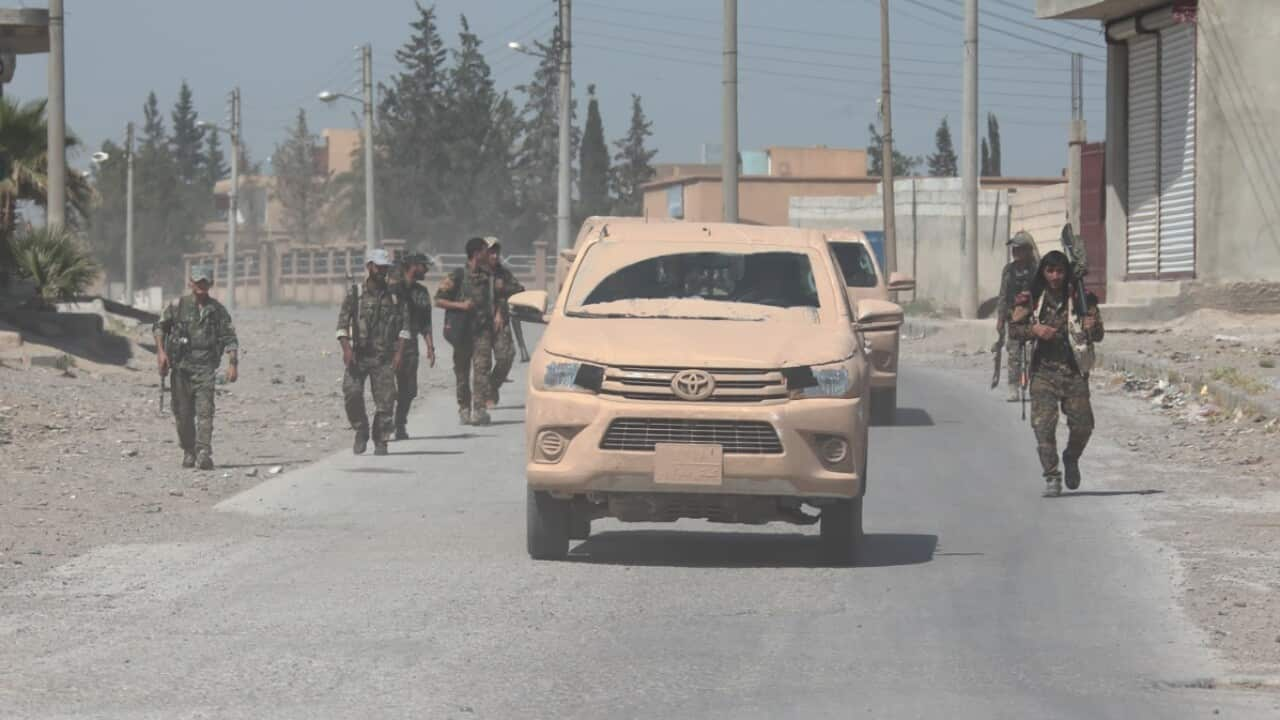US-backed Kurdish fighters in Syria have announced a fresh campaign to hunt down remnants of the Islamic State group near the Iraqi border following a recent uptick in attacks.
The Syrian Democratic Forces, a Kurdish-led paramilitary alliance that has spearheaded the ground fight against IS in Syria since 2015, said that the new campaign is being carried out in coordination with the Iraqi army and the US-led coalition.
"This campaign will target ISIS's hideouts and hotbeds," it said, using a different acronym for the jihadist group.
It said operations will focus on the vast east Syria desert near the border with Iraq where IS has conducted a spate of attacks in recent months.
Since the loss of its last territory in Syria in March 2019, IS attacks have been restricted to the vast desert that stretches from the heavily populated Orontes valley in the west all the way to Iraqi border.
It regularly targets SDF forces and has vowed to seek revenge for the defeat of its so-called "caliphate".
The SDF, with backing from its coalition allies, launched a campaign to hunt down sleeper cells after it forced IS jihadists out of their last Syrian redoubt in the desert hamlet of Baghouz in March 2019.
A raid in October by US special forces killed Abu Bakr al-Baghdadi, the leader of the jihadist group which once controlled large swathes of territory in both Iraq and Syria.
Last month, the United Nations accused the IS group and others in Syria of exploiting the COVID-19 pandemic to step up violence on civilians, describing the situation as a "ticking time-bomb".
Across the border in Iraq, IS has exploited a coronavirus lockdown, coalition troop withdrawals and simmering political disputes to ramp up attacks.
Iraq declared IS defeated in late 2017 but sleeper cells have survived in remote northern and western areas, where security gaps mean the group wages occasional attacks.
They have spiked since early April as jihadists plant explosives, shoot up police patrols and launch mortar and rocket fire at villages.











